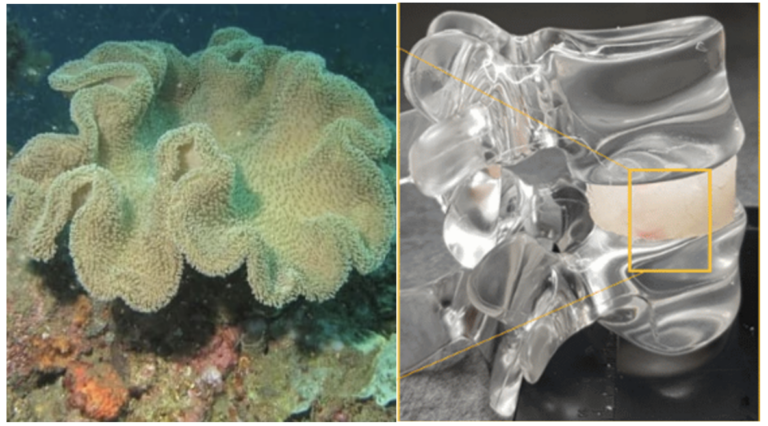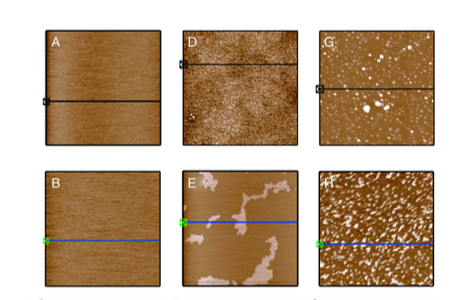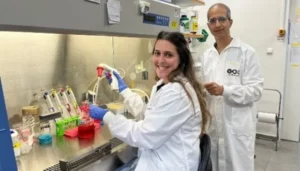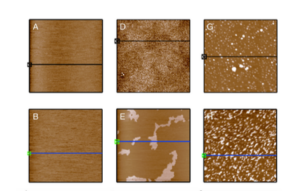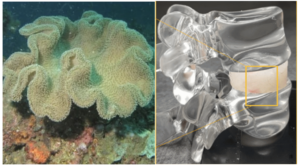Hadassah : excellents résultats d'essais cliniques d'un traitement à base de cellules souches sur des patients atteints d'ALS
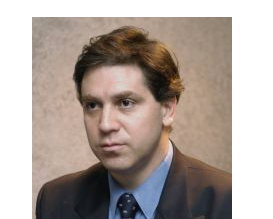
[:fr]La société BrainStorm Cell Therapeutics a annoncé que les résultats définitifs de ses essais cliniques Phase IIa menés à l’hôpital Hadassah en utilisant des cellules souches adultes pour traiter la sclérose latérale amyotrophique (SLA) montrent que la plupart des patients ont connu un ralentissement de la progression de la maladie. Une seule dose de traitement à base de cellules souches appelé NurOwn a été administrée lors d’un essai de phase IIa à mi-étape à 14 patients atteints de SLA (maladie de Lou Gehrig). « Presque tous les sujets de cette étude ont connu un bénéfice clinique grâce au traitement NurOwn », a déclaré le porte-parole de l’entreprise. « Sur les 12 patients suivis durant trois mois ou plus, 92 % ont connu une amélioration concernant la progression de la maladie. « En outre, rapporte BrainStorm, NurOwn a un effet important sur la fonction pulmonaire ».
«Nous avons observé chez les patients une stabilisation prolongée et même des améliorations de la fonction, et cela a été obtenu avec une dose unique de NurOwn», a commenté Tony Fiorino, CEO de BrainStorm. BrainStorm, qui a également mené des essais cliniques sur trois sites aux Etats-Unis, prévoit de lancer une étude dans les prochains mois pour voir si les résultats peuvent être amplifiés avec des doses répétées.

Principal Investigator Prof. Dimitrios Karussis, Senior Neurologist at the Hadassah Medical Center and Director of its Multiple Sclerosis Center, presented the interim results of this Phase IIa study at the 2014 Joint Congress of European Neurology in Istanbul. Prof. Karussis and Hadassah’s team, including Prof. Tamir Ben-Hur, Chair of Neurology, started work on clinical application of stem cell treatment in 2007 and published their results in 2010. “We then partnered with BrainStorm,” Prof. Karussis relates, “which combined the cells with hormones, including growth factors, to improve the performance outcomes.” It was Prof. Ben-Hur’s pioneering research, however, that laid the scientific foundation for the current use of stem cells to inhibit brain inflammation and protect the brain in treating multiple sclerosis. These principles of using stem cells for therapy were then expanded for additional conditions, such as ALS.
A single dose of the stem cell treatment called NurOwn was administered in a mid-stage phase IIa trial in 14 patients with ALS, also known as Lou Gehrig’s Disease. “Nearly all subjects in this study experienced clinical benefit from treatment with NurOwn, » the company spokesman said. “Of the 12 patients with three or more months of follow-up, 92 percent experienced an improvement in regard to the progression of their disease.” Furthermore, BrainStorm reports, NurOwn had a strong effect on the rate of decline in lung function.
« We observed individuals with prolonged stabilization and even improvements in function, and this was achieved with just a single dose of NurOwn, » commented BrainStorm Chief Executive Tony Fiorino.
BrainStorm, which is also conducting clinical trials at three sites in the United States, plans to initiate a study in the next few months to see if the results can be amplified with repeated doses.

